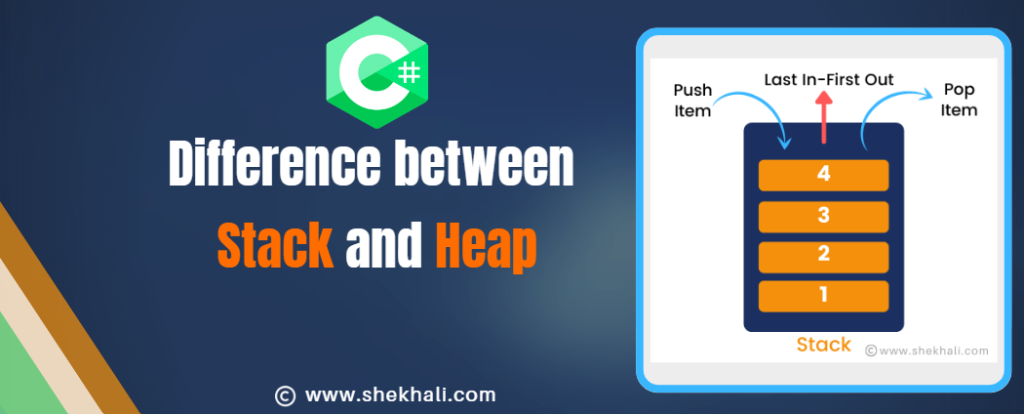Stack vs Heap: In C#, Stack and Heap are two important memory allocation structures that every programmer should understand.
The Stack is a Last-In-First-Out (LIFO) data structure that temporarily stores data with a short lifespan, such as function call parameters and local variables.
It is used for short-term memory allocation, ideal for data that is needed only within the scope of a method or function. The Data in the Stack memory is automatically deallocated when the method’s scope (function or block) is exited.
Stack memory is typically faster to allocate and deallocate than heap memory but has a fixed size, which can lead to stack overflow errors if exhausted.
On the other hand, A Heap is a dynamic memory allocation structure used for objects with a longer lifespan, but be aware of managing their memory properly (or relying on the garbage collector in C#).
Objects created using the new keyword are typically allocated on the Heap.
The main difference between the two is that Stack memory is allocated and deallocated in a predictable and deterministic manner, while Heap memory is allocated dynamically and can lead to fragmentation over time.
